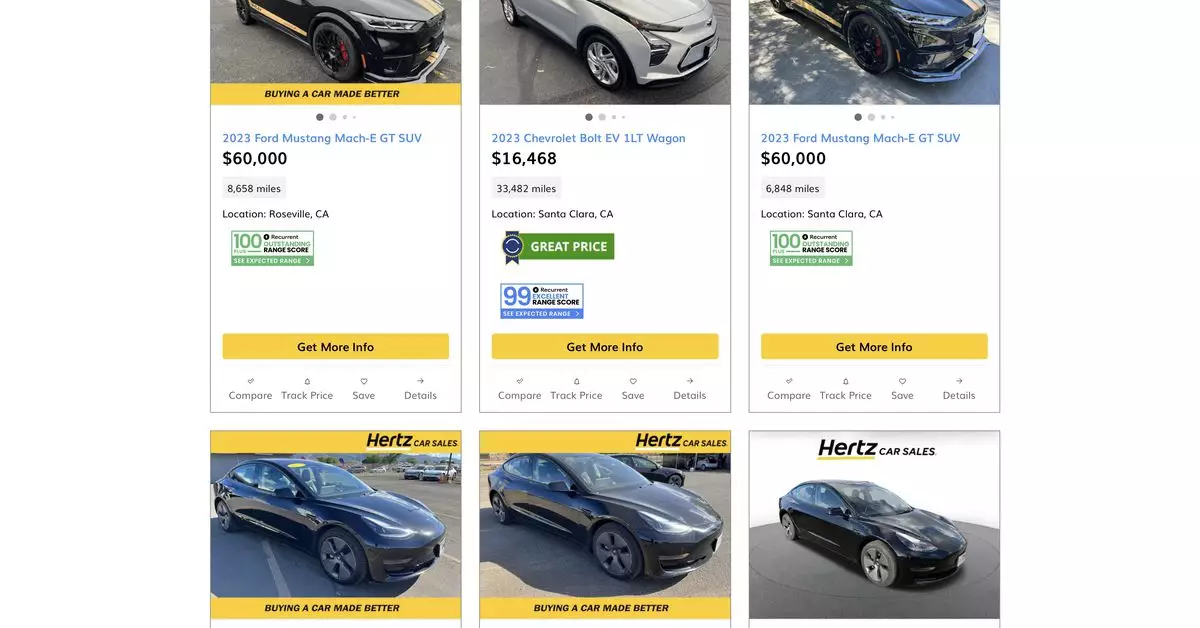As the electric vehicle (EV) market continues to expand, rental companies are starting to rethink how they approach and sell these innovative vehicles. Recently, Hertz has adopted a strategy that proposes a novel offering to its customers: instead of simply returning their rental EVs, renters are given the option to purchase them at a competitive price. This initiative shifts the narrative around car rentals from mere temporary use to potentially permanent ownership, allowing consumers to evaluate the performance and suitability of an electric car in their daily lives before committing to a purchase.
Reports of specific offers made by Hertz have surfaced on platforms like Reddit, where renters shared their experiences. For instance, one renter of a 2023 Tesla Model 3 was presented with a purchase price of $17,913, which closely resembles the pricing available on Hertz’s Car Sales site. Interestingly, the vehicle in question had accumulated roughly 30,000 miles, making it competitive when juxtaposed with similar listings that often showcase higher mileage. Another user noted an offer for a 2023 Chevy Bolt priced at $18,442 and a Polestar 2 at $28,500. Such offers are emerging amid a backdrop of economic considerations, where affordability could sway consumer decisions toward EV ownership.
Jamie Line, Hertz’s communications director, has clarified that this initiative isn’t an isolated promotion for EVs, but rather an integrated part of their broader sales strategy. By engaging with rental customers via emails and connecting them to sales channels, Hertz aims to raise awareness about its car sales offerings while simultaneously catering to consumers who have developed a preference for the vehicles they are renting. This approach enhances customer engagement while aligning with Hertz’s long-term sustainability goals.
However, the journey to electrification has not been without challenges for Hertz. Last year, they faced setbacks due to lower-than-expected customer demand and difficulties in maintaining their fleet, particularly models like the Tesla Model 3. This led to a scaling back of Hertz’s ambitious plans for its EV rental fleet. Moreover, in February, Hertz made headlines by announcing the cessation of purchases for Polestar 2 vehicles, in addition to marking 30,000 Teslas for sale from their rental stock.
The implications of these developments for consumers are significant. The option to purchase a rental EV allows individuals to mitigate the risks often associated with buying a used car, such as unknown performance issues or depreciation concerns. Additionally, it offers a convenient opportunity for consumers to shift to electric mobility in a financially viable manner. As rental companies like Hertz evolve their strategies, it will be critical to monitor whether this model resonates with consumers seeking electric alternatives.
Through innovative marketing and flexible purchasing options, Hertz is reshaping its approach to the EV rental market, facing down challenges while creating opportunities for customers. This re-evaluation not only seeks to attract potential buyers but also signals a promising direction for the rental industry amidst the burgeoning demand for electric vehicles.

